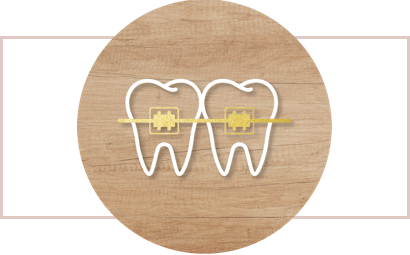

Restoring Your Roots
Cavities can be easy to spot because of their discolouration and can eventually lead to discomfort. Root canal infections often come with their own list of symptoms that may not be as obvious because you can’t physically see the issue just by looking.
Your dentist may suggest you have a root canal procedure to revive and strengthen your tooth if there is an infection or inflammation inside.

What are the Benefits of a Root Canal?
If you’ve ever had a toothache, you know the feelings can be persistent and uncomfortable. A root canal may help solve the pain.
Symptoms of an infected tooth include:
- A persistent and throbbing toothache
- Severe pain that radiates to the jawbone, neck, or ear
- Hot and cold temperature sensitivity
- Difficulty or discomfort chewing or biting food
- Fever (consistent with infection)
- Swelling in your face or cheek near the source of toothache
- Tender or swollen lymph nodes on the neck or under the jaw
- Foul-smelling or foul-tasting salty fluid in your mouth followed by pain relief
- Difficult breathing or swallowing—please call a healthcare professional
If an infected tooth is left untreated, it can lead to an abscess, causing more pain. If the pulp of your tooth decays, an infection can build up at the root of the tooth in the jaw bone and possibly spread. An abscess can destroy the jawbone surrounding the tooth and cause further complications.
Common causes of pulp damage and infections:
- A cracked or flawed fillings
- Deep cavities
How Does a Root Canal Work?
A root canal procedure removes your tooth’s damaged pulp from the centre of your tooth. The space is then cleaned, shaped, and filled to seal off the root.
Most root canal procedures solve the issue of toothache and infection. In some cases, a second treatment may be needed, called “retreatment.” If this occurs, the filling material is removed, the canal is cleaned again, reshaped, and refilled.
How Long Does a Root Canal Last?
A root canal may last up to 10 years, depending on how it’s taken care of and other possible dental issues.
Visit your dentist regularly for cleanings and exams, as this will help your teeth and root canal stay healthy.
How Long After a Root Canal Can You Eat?
Allow your temporary filling to fully harden, which should take about 45 minutes. It’s also recommended that any patient should wait until any anesthetic has worn off, so you don’t accidentally bite your tongue or cheek.
We’re Rooting for Your Oral Health
At Hill Top Dental Centre, we’re doing more than rooting for your oral health; we’re helping you achieve it.
Toothaches shouldn’t be ignored. If you experience any discomfort, it could mean there’s an issue, like inflammation or infection.
Make sure your teeth are doing their best job, and talk to us today about any discomfort you are experiencing.

Location

Our Address
- 2930 Simcoe County Road 27
- Bond Head, Ontario L0G 1B0
Book Now
Clinic Hours
- Monday: 9:00 AM – 7:00 PM
- Tuesday: 9:00 AM – 5:00 PM
- Wednesday: 9:00 AM – 5:00 PM
- Thursday: 9:00 AM – 7:00 PM
- Friday: 9:00 AM – 12:00 PM
- Saturday: 8:00 AM – 12:00 PM


Our Services








Our Social Media